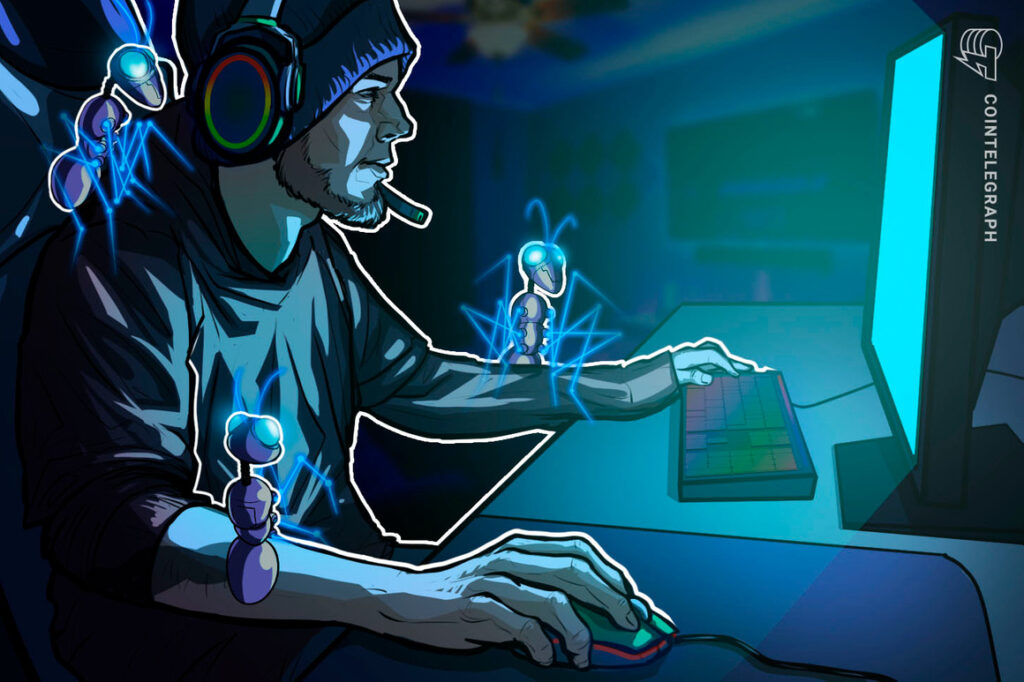Market tracker DappRadar and the Blockchain Game Alliance, or BGA, published the Blockchain Games Report for Q1 2022 on Wednesday. After citing that $720 million was invested into blockchain games and infrastructures in February in a previous report, the latest number for total Q1 investment is $2.5 billion. Venture capitalists and other investors raised $4 billion in 2021.
The biggest deals listed in the report include Animoca Brands raising $360 million, bringing its valuation to $5 billion and becoming a leading Web3 brand. Sequoia Capital led a $450 million investment in Polygon (MATIC), while Yuga Labs, the studio behind Bored Ape Yacht Club (BAYC) nonfungible tokens (NFTs), received a $450 million investment led by Animoca Brands, with The Sandbox, FTX and Coinbase to launch its Otherside metaverse with play-to-earn (P2E) games.
According to DappRadar, Blockchain games attracted 1.22 million unique active wallets (UAW) in March, and more than half of the industry’s activity came from game decentralized applications (DApps) or gaming applications with play-to-earn incentives. Splinterlands is named the number one play-to-earn DApp. And Polygon is the layer-2 (L2) sidechain with the top played P2E games, such as Crazy Defense Heroes, Pegaxy, Arc8 and Aavegotchi.
Cointelegraph asked Sebastian Borget, co-founder of The Sandbox metaverse and president of the Blockchain Game Alliance, why he thinks Polygon has benefited the most from P2E mechanics and NFTs compared to other ecosystems like Wax, Harmony and BNB Chain. He listed a few main reasons; namely, that Polygon remained Ethereum Virtual Machine-compatible and the Polygon Foundation supported them heavily in marketing and grants. Another reason is that guilds easily migrated their users to Polygon while keeping MetaMask as the main wallet.
Borget also pointed out that Polygon was the first L2 blockchain for NFTs on OpenSea, which drove additional liquidity for NFTs. He predicts that the emergence of NFTs and blockchain-based games on ImmutableX (IMX, Tezos (XTZ), Solana (SOL) or BNB Smart Chain (BSC) will “definitely shift the distribution in the second half of 2022.”
“NFTs represent an opportunity for game developers to create games with player-owned economies; where the community of holders are both the early supporters of the game but also the main actors of its development and true stakeholders of its success.”
Related: Immutable raises $200M to invest in blockchain gaming, bringing valuation to $2.5B
The report also found that the metaverse is “one of the most exciting opportunities in the blockchain industry.” Even though the trading volume in virtual worlds decreased slightly from Q4 2021, it reached over $430 million in Q1 2022. Platforms like The Sandbox, which completed its second Alpha season, are attracting players and brands like Warner Bros, Ubisoft and HSBC. At the same time, lifestyle metaverse Decentraland hosted a Fashion Week in March for brands to further engage with consumers.
DappRadar underscores an important point when it comes to the Metaverse: “The ownership entitled by NFTs and the underlying financial ecosystem enabled by cryptocurrencies and play-to-earn games will shift the paradigm from the traditional metaverse that is limited to a virtual, augmented reality.”
Additionally, while Axie Infinity (AXS) is among the top 10 most played games based on daily usage, the report pointed to a decrease in UAW after the $650 million hack of Axie Infinity’s Ronin Bridge in mid-February.

